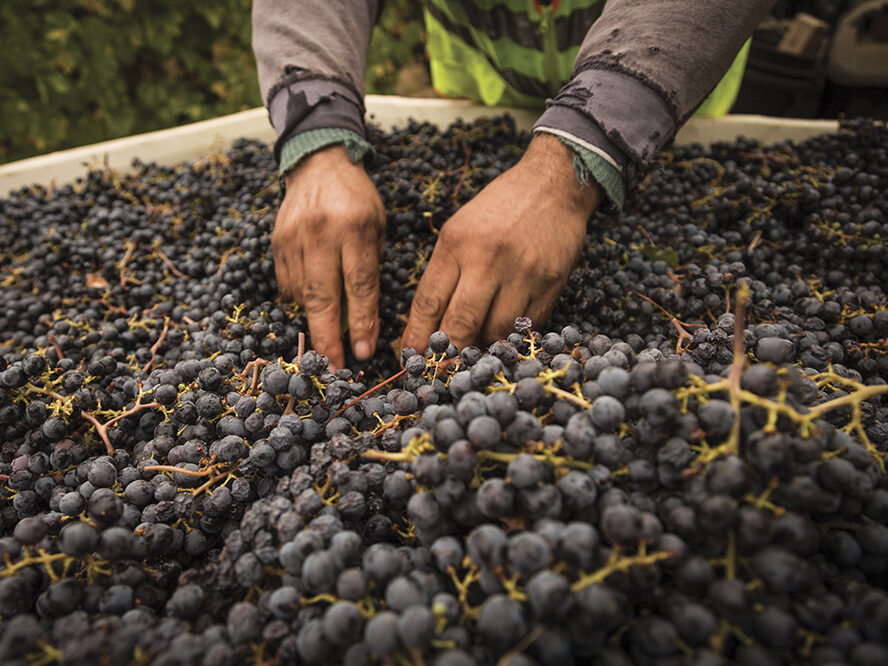“At Grgich Hills, we grow grapes like my grandfather did, farming without chemicals and pesticides,” said Ivo Jeramaz, winemaker and VP of Vineyards and Production at the Rutherford-based winery.
Jeramaz began his winemaking career in his native Croatia, where he learned to grow grapes and make wine on his family’s small subsistence farm. He never intended to make a career out of it, however. Instead, he earned a degree in engineering in hopes of one day immigrating to California in pursuit of a job in that field. Jeramaz moved to Napa in 1986 with the help of his uncle Miljenko “Mike” Grgich – the famed winemaker who crafted the winning Chardonnay at the 1976 Paris tasting – and quickly fell in love with the world of winemaking that he found, pivoting careers to work for his uncle at Grgich Hills Estate.
Now, almost three decades later, Jeramaz is still humble, working with the land in the most sustainable way to create a more authentic and distinctive wine. “Mike taught me early in my career that you need great grapes to make great wine,” he shared. “Through our natural farming, it’s been very rewarding to see the soil alive with healthier plants than under conventional farming.”
Improving the health of Grgich Hills’ 365 acres of vineyards has always been Jeramaz’s key focus since taking over vineyard management in 2000. That year, he began farming all five of their estate vineyards organically and achieved total organic certification in 2006. He started working with biodynamic preparations in 2005, which he continues to implement to this day.
However, Jeramaz is most excited about regenerative farming, a practice he began applying to vineyard operations in 2019. Regenerative agriculture prioritizes soil health and the maintenance of a diverse microbiome, and has the most rigorous certification process, enforcing standards for land management, employee welfare, and biodiversity. Grgich Hills was proud to become one of less than 20 wineries worldwide to receive Regenerative Organic Certification in March of 2023.
By focusing on soil health, regenerative farming subsequently contributes to fighting the impacts of climate change and rehabilitating natural ecosystems — and in terms of wine, this style of farming permits a clearer sense of place in every sip. “On a chemical level, we’ve been seeing a better ratio of sugars to acids in white wines and more tannins and polyphenols – the compound that creates vivid colors – in reds,” said Jeramaz.
Jeramaz is looking forward to an excellent yield this harvest season, expecting a crop that could be 20% larger than average. “The vines are looking much healthier and less stressed thanks to our unusually cool and wet weather this year,” Jeramaz said. “Now we just have to hope there aren’t any late-season heat spikes, and we’ll be looking at a fantastic harvest.”
During harvest, Grgich applies sustainable techniques like hand-picking grapes to ensure they aren’t broken by mechanical pickers, which can lead to oxidation or bacterial growth. Additionally, Grgich repurposes any pomace produced during the winemaking process and uses it as a base for the compost sowed throughout their vineyards. “This is a very natural way to reintroduce those nutrients back into our vineyard ecosystem,” said Jeramaz.
As Jeramaz and Grgich Hills continue to navigate the simultaneous hurdles and rewards of regenerative farming in the vineyard, they hope to continue their efforts by working with like-minded farmers both in the valley and further afield. “I believe that all of humanity would greatly benefit if regenerative farming were widespread, not only in winemaking but in all types of agriculture,” concluded Jeramaz. “Farming is one of the most important jobs in the world – farmers provide us with the sustenance we need every day, and when they grow their crops in a healthy system, food can be like medicine.”


